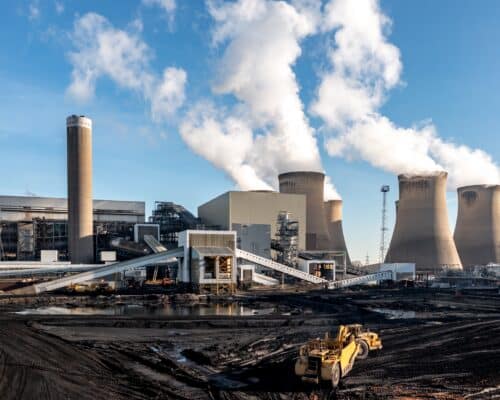Fossil Fuel
Thailand’s LNG Development Is Not The Way Forward For Its Energy Sector
Thailand is one of the few Asian countries ramping up LNG procurement as prices for the fuel dip. This comes as it needs gas to drive a post-COVID economic recovery. However, lower prices are only part of the story. The other part is that Thailand is a natural gas-based economy.
Hydrogen Production Methods from Fossil Fuels Overshadow Alternatives
Today, 99% of hydrogen is produced using fossil fuels. However, green hydrogen can become a viable alternative.
Hydrogen Economy – Meaning, Benefits and Future
The hydrogen economy is the idea of a world partially powered by hydrogen. If green hydrogen becomes the predominant production method for hydrogen, it will play a critical role in the world's low-carbon future. However, green hydrogen needs to be financially viable and requires ongoing support from the public and private sectors.

Japan’s G7 Fossil Fuel Push – Podcast
Susanne Wong, at Oil Change International, speaks about Japan and the fossil fuel push at the G7.
Energy Security in Bangladesh is Threatened by Fossil Fuels
The fossil fuel dependence of Bangladesh has significantly impacted its economy. The country should no longer bear the exorbitant power costs and unreliable supply, especially when better, cleaner and cheaper options exist.
Japan’s Ammonia Plans Threaten the Carbon Emissions Reduction of Southeast Asia
Aside from a few positive outcomes, the G7 ministerial meeting ended disappointingly due to a final communique with vague wording and weak commitments. This sets the stage for Japan to continue doing business as usual.
How the Unreliability and Unpredictability of Fossil Fuels Hurt Bangladesh
Bangladesh has suffered enough from fossil fuel import dependence and has experienced first-hand how the dirtiest fuels affect the climate. However, thanks to its clean energy potential, the country holds the keys to an independent and sustainable future.
The Electricity Sector in Bangladesh: What Comes Next?
Transitioning the power sector in Bangladesh towards renewable energy would unlock massive benefits for the country, its economy and society.
Current State And Future Of Japan’s Carbon Emissions
Japan produces the fifth-most carbon dioxide emissions annually, and in the G7, it only falls below the United States. While the country does have a net-zero goal for 2050 and an interim goal for 2030, its current decarbonisation strategy may not be feasible. It relies on decarbonising the fossil fuel industry, a strategy climate experts warn against.
Japan’s Natural Gas Dependence: A Liability For the G7
Japan imports over 90% of its natural gas. As a result, it is reliant on the global LNG market and current events to dictate supply and energy costs. This is a liability that was highlighted in 2022 due to the country's dependence on Russian natural gas. Developing a robust renewable energy grid is the only viable long-term solution.
Taiwan’s Tech Giant TSMC’s Net Zero Pathway Falls Short
Giant chipmaker TSMC is facing a backlash over its enormous fossil fuel usage and carbon emissions, even as much of the global tech sector cleans up its carbon footprint.
Coal Phase-out Accelerates Globally Except in China: ‘Boom and Bust’ 2023
Thanks to its unprecedented renewable energy capacity additions, China was poised to be a leader in the battle against climate change. However, its coal pivot risks tarnishing that.
Fossil Fuel Imports Risk Japan’s Energy Security
Japan has low domestic fossil fuel production yet relies on fossil fuels for most of its energy. High dependence on foreign imports is creating energy security concerns. However, Japan remains seemingly uncommitted to completely phasing out fossil fuels, lagging behind other G7 nations.

G7 Ministers’ Meeting 2023: What Is the Desired Outcome?
The G7 Climate and Energy Ministerial Meeting is shaping up to be a roadshow for Japan's questionable technologies. If the world is to stand a chance in limiting climate change to 1.5°C, the G7 reject the proposals, speed up coal phase-out and limit gas investments.
Most Popular
Categories
-
10
-
34
-
126
-
4
-
17
-
46
-
52
-
11
-
10
-
15
-
24
-
6
-
1
-
5
-
6
-
281
-
200
-
17
-
24
-
1
-
1
-
23
-
41
-
44
-
87
-
18
-
86
-
41
-
17
-
11
-
43
-
54
-
86
-
298
-
22
-
44
-
36
-
10
-
42
-
36

